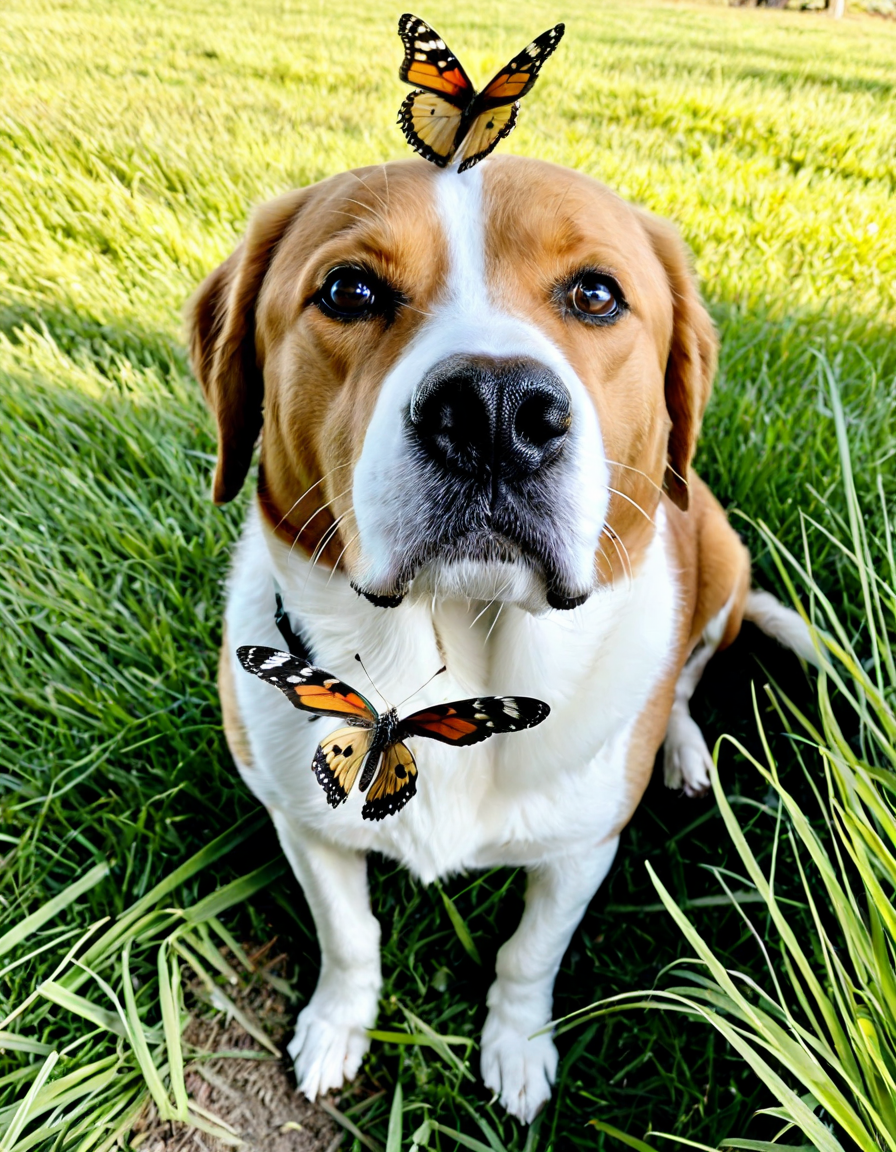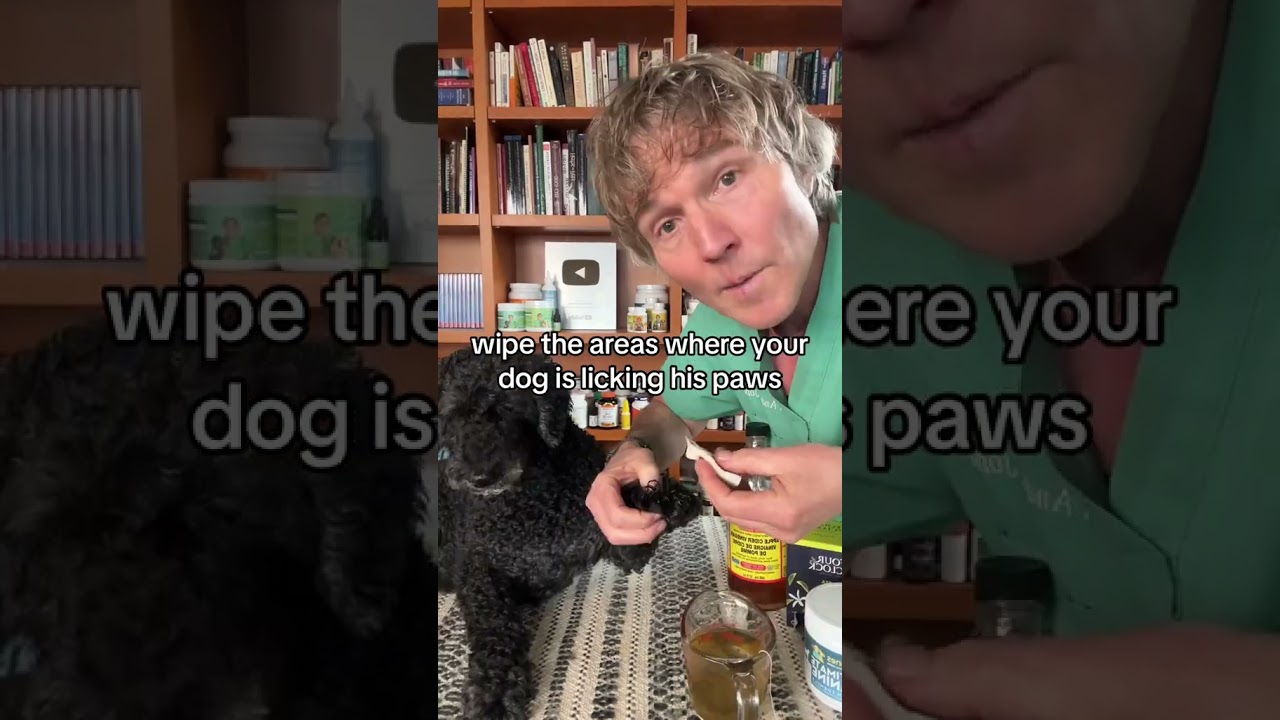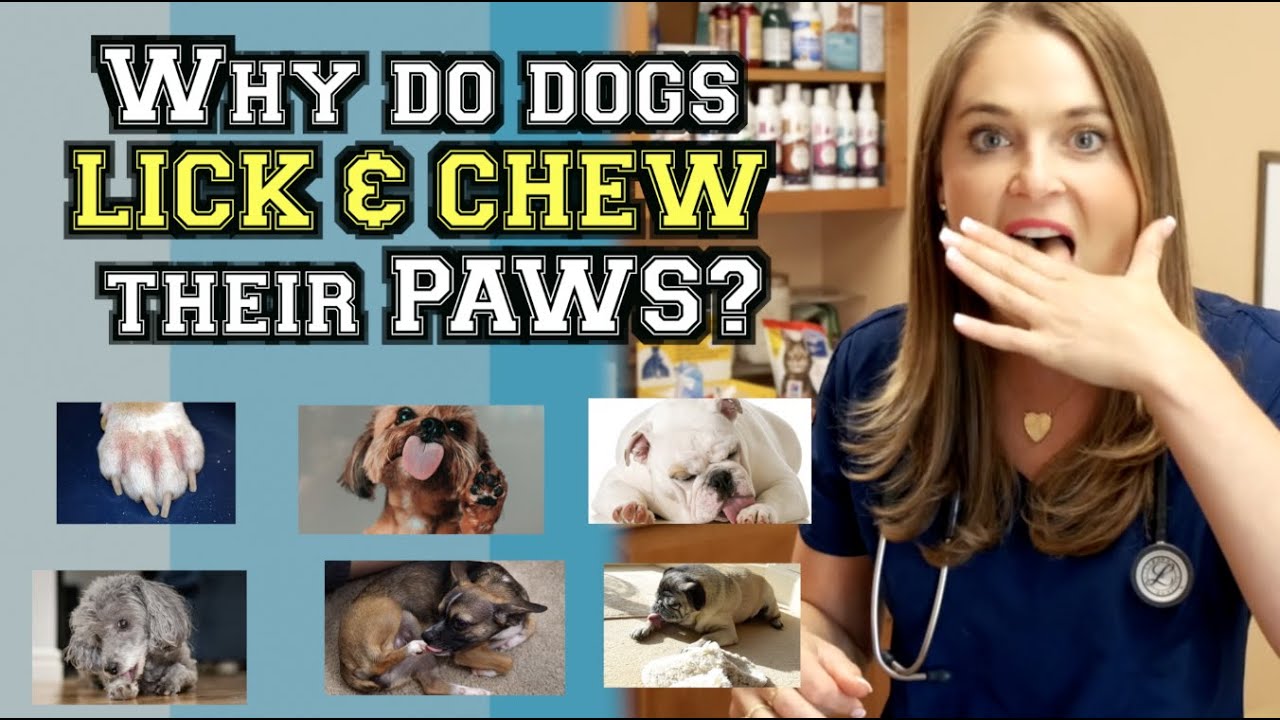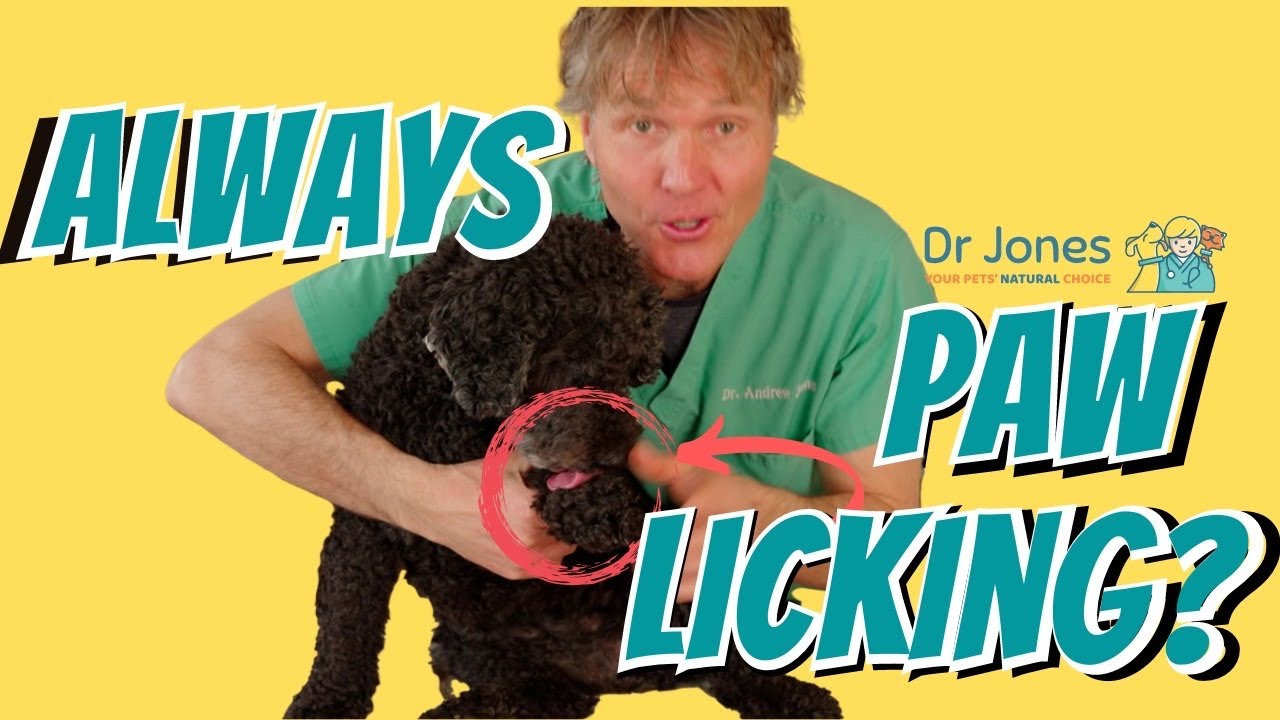If you’ve noticed your dog biting his paws, you’re likely wondering, “Why does my dog bite his paws?” You’re certainly not alone. This odd behavior puzzles many dog owners and can spark concern about your furry friend’s health and well-being. Understanding the reasons behind this habit is essential for addressing it and ensuring your pup leads a happy, healthy life. In this article, we’ll explore the top reasons dogs engage in paw biting and offer insights into related behaviors, such as why does my dog keep licking his lips and why does my dog lick my ears.
Top 7 Reasons Why Does My Dog Bite His Paws
One of the main culprits behind why your dog bites his paws could be allergies. Dogs can be allergic to all sorts of things—common allergens include certain foods, pollen, and even household cleaning products. For instance, according to research from the American Kennel Club, dogs plagued by allergies often show signs of persistent itching and licking, leading them to bite at their paws. If you suspect allergies might be the reason, it’s worth scheduling a visit with your vet to explore possible solutions, like changing diets or medications.
Another reason dogs bite their paws might be due to infections or parasites. Conditions like pododermatitis can result in painful, inflamed paw pads. On top of that, ectoparasites like fleas or ticks can cause a ton of irritation. For treatment, you may need to consult with a veterinarian, who can prescribe antiparasitic medications or topical treatments to get your dog back on track and feeling comfortable again.
Dogs need mental and physical stimulation to stay happy. Without enough playtime or exercise, boredom can set in, leading to compulsive behaviors like paw biting. If your dog is left alone for prolonged periods, consider implementing interactive toys or increasing your daily walks. This doesn’t just keep them distracted—the added fun helps strengthen the bond between you and your furry companion!
Sometimes, when your dog bites his paws, it might signal that he’s in pain. Conditions ranging from arthritis to injuries or ingrown nails can result in localized discomfort. Observe if your dog exhibits signs of pain elsewhere, such as limpness or reluctance to play. Regular vet visits are crucial, as they can help rule out some of these underlying health issues that may be causing your dog pain.
Occasionally, compulsive paw biting can be a sign of anxiety or stress. Dogs often mimic behaviors they see in their environment. If there have been recent changes at home, such as introducing a new pet or a shift in your routine, your dog might be responding to those changes. Using calming aids, engaging in training techniques, or simply spending more quality time together can help alleviate your dog’s stress.
With changing seasons comes changing environments, and some dogs react poorly to this shift. Seasonal changes can lead to dry skin or irritation, making paw biting more likely. During dry seasons, consider applying paw balms like Musher’s Secret or Paw Soother to soothe dry, cracked paws and keep them healthy. This small act can prevent discomfort and make walks much more enjoyable for your pup.
Finally, sometimes dogs develop the habit of self-soothing by licking or biting their paws. This behavior often arises when they feel anxious or insecure. If your pup’s paw-biting habit seems unconscious, positive reinforcement techniques and distractions can effectively break this cycle. Puppies, for instance, may require a bit more patience from you as they learn what’s appropriate and what’s not.
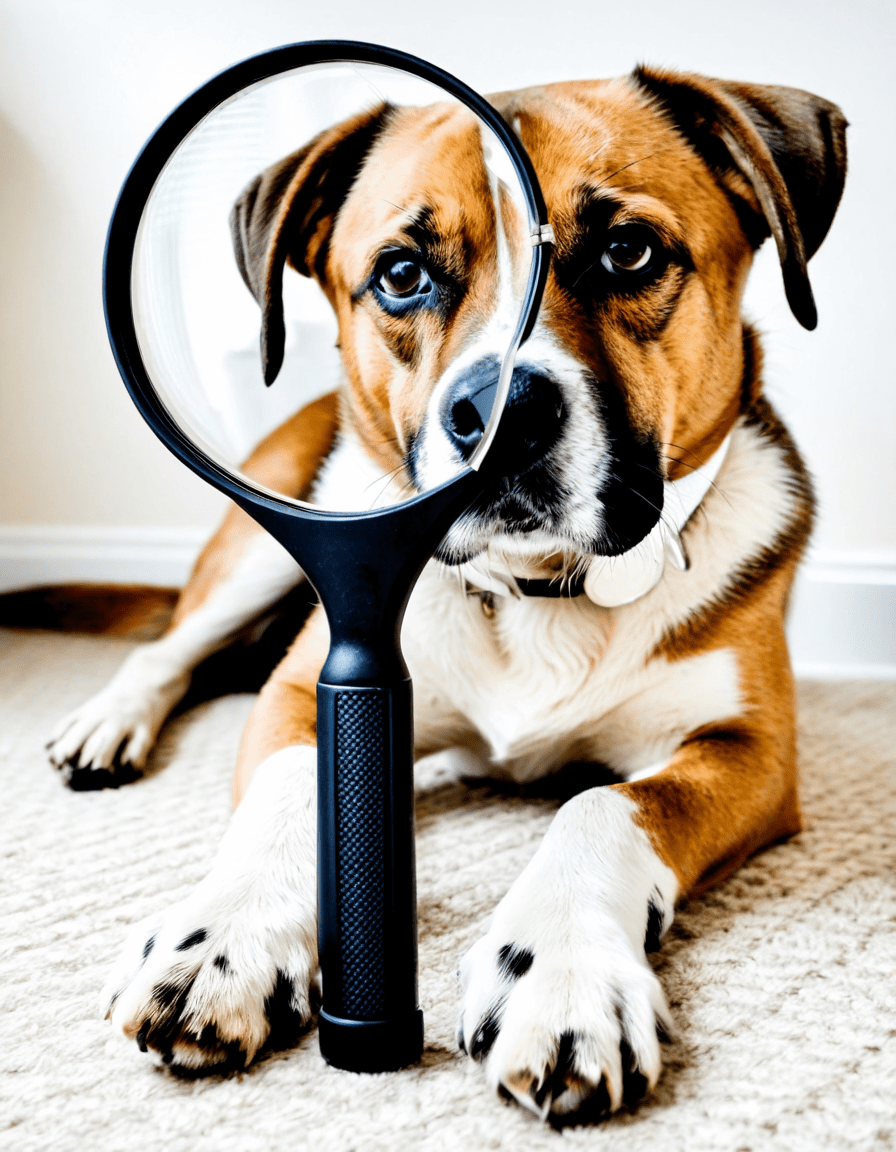
Related Questions: Why Does My Dog Keep Licking His Lips or Licking My Ears?
If your dog’s biting habits extend beyond his paws to licking his lips or your ears, these additional behaviors can provide insight into other underlying issues.
Lip licking can point to anxiety or anticipation. However, it might also indicate digestive discomfort. If your dog keeps licking his lips, it’s a good idea to keep an eye on his diet and meal patterns, especially if you suspect he might have eaten something that didn’t agree with him. For questions on dog diets, you might wonder can Dogs have mac And cheese—and the answer is usually no!
This seemingly funny behavior often signifies affection. Dogs communicate through licking, and your ears might be an object of attention simply because they’re close by and soft. However, this action can stem from curiosity or a desire to get a taste of something interesting. Regular grooming and care can minimize such tendencies and keep your dog clean and healthy.
Innovative Wrap-Up: Understanding and Addressing Paw Biting
Understanding why your dog bites his paws is essential for you as a responsible pet parent. Whether it’s allergies, infections, or behavioral issues, recognizing the cause can lead to effective solutions. Observing changes in your dog’s overall behavior, including habitual actions like lip-licking or ear-licking, is part of a proactive pet care approach. If you notice persistent issues, do consult with a veterinarian for tailored advice and effective treatments. Always remember that an engaging and loving environment fosters healthier behaviors in dogs. The more you understand your furry friend’s quirks, the better you can support their needs and happiness.
For further reading on dog behavior, be sure to check out additional resources such as why Does My dog have a runny nose or explore food-related questions like can Dogs eat potato Peels Be informed, and keep your buddy in great shape!
Understanding your dog is a bit of a journey, but you’re not alone in navigating through these questions. Just remember: a well-cared-for dog reflects a happy heart at home!
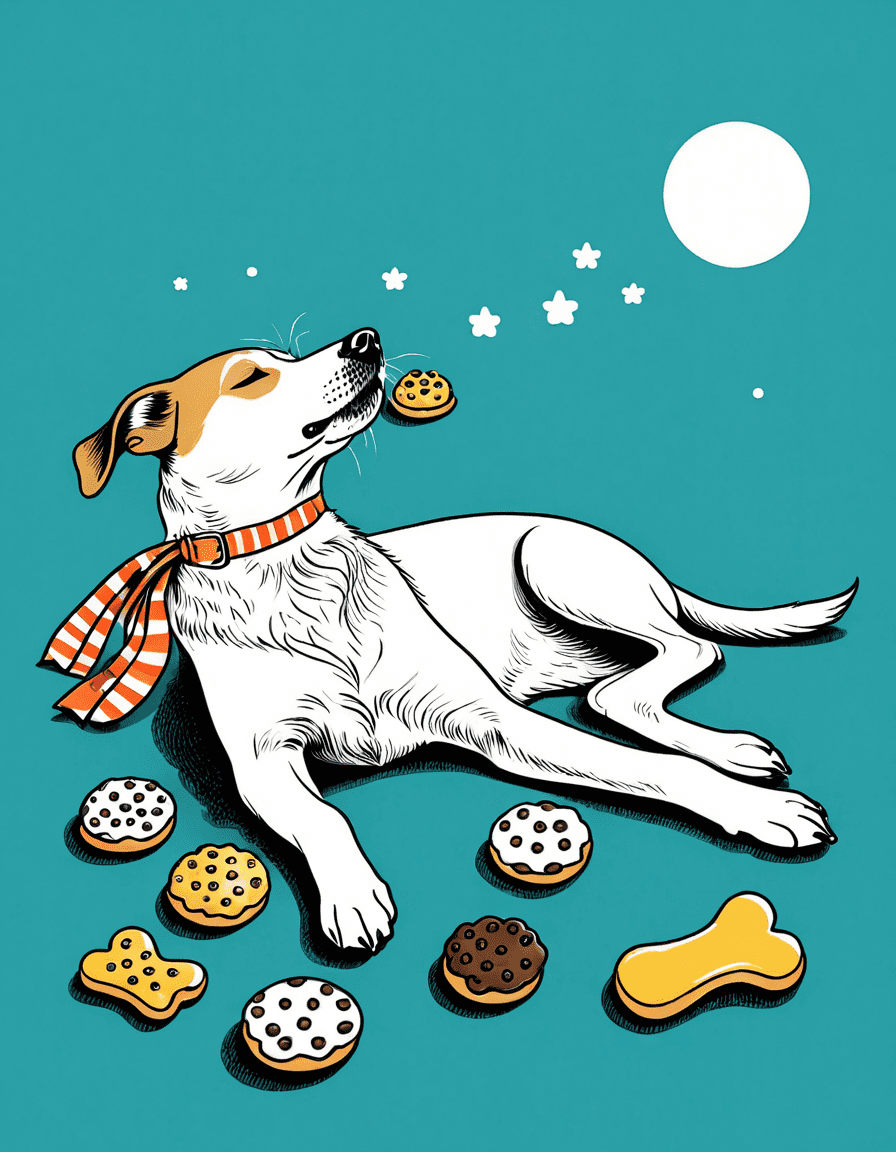
Why Does My Dog Bite His Paws?
Biting or licking at their paws can raise some eyebrows among dog owners. So, why does my dog bite his paws? Turns out, there’s a variety of reasons behind this odd behavior. It might be simple boredom or a way to show excitement, but it can also point to deeper issues like allergies or stress. Understanding why your pup is indulging in paw-biting can guide you in addressing the root cause.
Common Causes Behind the Behavior
Often, a dog will bite their paws due to allergies. Did you know that some dogs might develop sensitivities to things like grass or certain foods? Speaking of food, ever wondered if you can share your comfort food with your furry friend? While you might think can Dogs have mac And cheese, it’s important to keep in mind that not every human food is safe for dogs. If you notice your dog biting his paws after playing outside, it could also mean they’re trying to soothe itchy spots from allergens.
Sometimes, it’s not just physical; stress or anxiety can make your dog chew on their paws as a coping mechanism. Just like humans have their own ways of handling nerves, dogs do too! Providing a safe space and engaging activities could ease that stress. Here’s a fun piece of trivia: did you know that dogs may even have emotional responses similar to humans? Who knew our furry companions were so complex?
When to Seek Help
Continual paw biting can be a signal that it’s time to see a vet. Never hesitate to check in if you’re worried about their health, as some signs may indicate more pressing medical issues. And while you might find yourself researching different causes, you might stumble upon some curious trivia, like the popularity of Apollo 18 among sci-fi fans. Paws and all, our dogs keep us on our toes! Help them feel comfortable again by addressing their needs properly before it becomes a habit.
In the end, figuring out why does my dog bite his paws is crucial for their well-being. Keeping them active, mentally stimulated, and checking for any signs of allergies can make all the difference. And if you’re ever in doubt, don’t forget to consult those expert insights. After all, our pets deserve the very best care we can provide!
